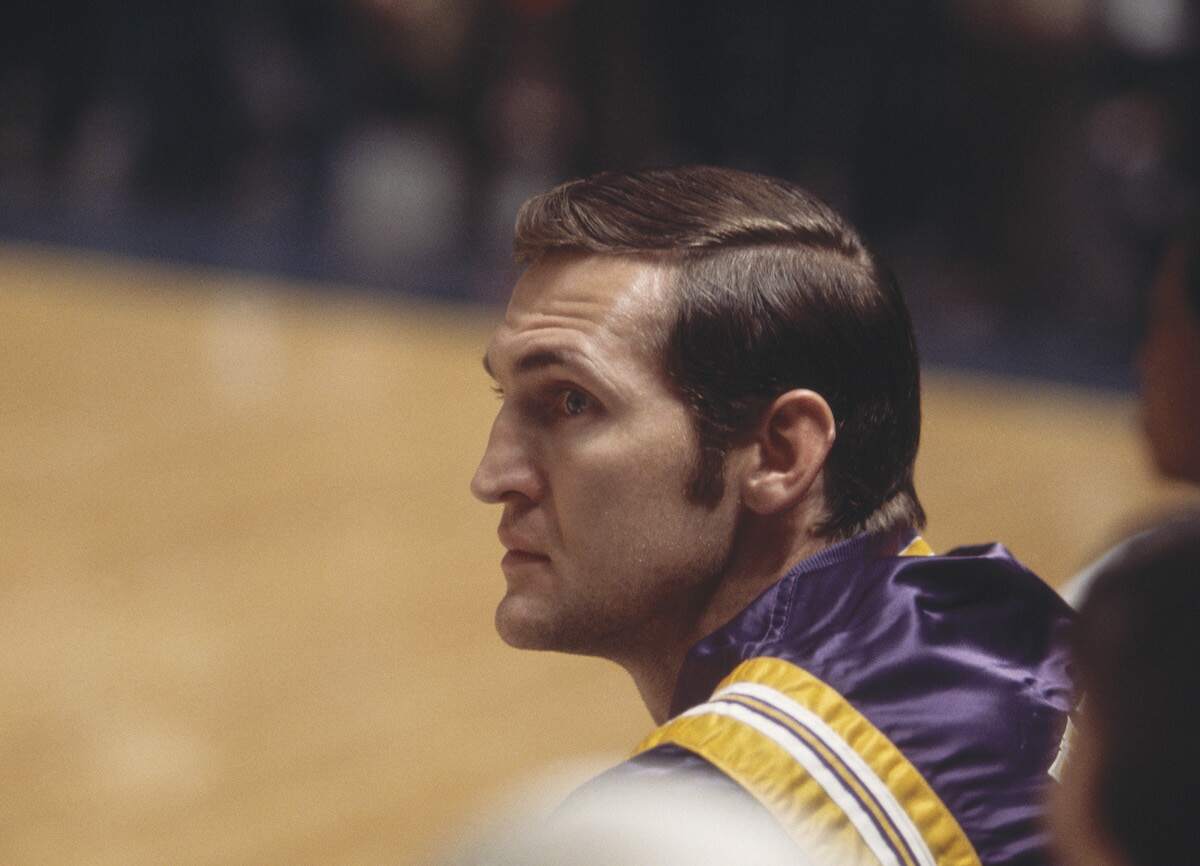NBA
NBA Finals: Jerry West Still Holds a Heartbreaking Record as a Finals MVP

Don’t let the historic barbs from JJ Redick and others fool you. Jerry West is an NBA legend who changed the course of the sport as a superstar guard, head coach, and talent-spotting executive. His repeated defeats in the NBA Finals hit him har. But West’s on-court dominance was so pronounced he was still rewarded the Finals MVP award in 1969 despite the Lakers coming up short again against Bill Russell‘s Boston Celtics.
Jerry West is the only NBA player to win the Finals MVP yet lose the championship
It’s easy to see why West became the basis for the NBA’s logo. He was a defining figure in the league’s early stages. West was the Lakers’ first draft pick after the franchise moved to Los Angeles. The West Virginia Mountaineers alum amassed stats and accolades that stand the test of time decades after he finished his 14-year career.
One of 11 players to make at least 12 All-NBA teams, West was one of six to lead the league in scoring and assists and one of four to accrue 25,000 points, 6,000 assists, and 5,000 rebounds. He was also a 14-time All-Star and a member of the All-Defensive first team for four consecutive years from 1970-73. (However, he was never the league MVP.)
He didn’t stay away from the game for long after retiring in 1974. As seen in West’s favorite show Winning Time, he coached the Lakers to a 145-101 record from 1976-79. He then became one of the best front-office executives ever, playing a role in the Showtime era of Lakers basketball, the Kobe-Shaq dynasty, and the emergence of the Golden State Warriors.
But there is one fact about West’s career that causes the famously complicated man great shame: his 1-8 record in the NBA Finals. His main obstacle was Bill Russell’s Celtics, who beat West’s Lakers six times in the championship round.
Even though he frequently came up short, West still earned the nickname “Mr. Clutch” with good reason. He averaged 29 points a game in the postseason and holds the league record for the highest average in a single series (46 points a game in the 1965 Western Division finals against the Baltimore Bullets.)
None of the losses were his fault, but West still feels the weight of coming up short so many times. “To win [the Finals] only once is probably something that haunts me to this day; it does,” he told The Athletic (subscription required) last year. “I feel like I let the city down. I let myself down. And most of all, I felt like I let the people I played with down, regardless of how I played.”

The 1969 NBA Finals: Jerry West’s Lakers vs. Bill Russell’s Celtics
The last time West and Russell met in the Finals was in 1969. Everything was set up for the Lakers to get the title. Los Angeles were heavy favorites over an aging Boston team who limped into the playoffs as the fourth seed in the East. But the Celtics roused themselves to force a Game 7 in LA.
Even then, the expectation was that the Lakers would win. The home team had won every game of the series. According to Famous Daily, Lakers owner Jack Kent Cooke ordered thousands of balloons with “World Champion Lakers” printed on them. Those balloons would never fall from the rafters.
Boston shocked the world and won the game 108-106. West did everything he could, putting up a 42-point triple-double in the game and averaging 38 points, seven assists, and five rebounds in the series. His incredible displays were recognized with the Finals MVP award. This makes him the only player in NBA history to win the prize in a losing effort.
Jerry West’s 1972 NBA Finals redemption
West would finally stand at the top of the mountain in 1972, 12 years into his career. That year, the Lakers faced off against the New York Knicks (whose rotation included a young Phil Jackson), who previously beat LA in the 1970 Finals in a seven-game series.
The Lakers were the class of the league during the regular season. They set a then-record 69 games, including a 33-game win streak, a feat that still hasn’t been topped. The team was built on offensive firepower. LA averaged 121 points per game thanks to the deadly backcourt of West and Gail Goodrich (they both averaged 26 points a game that year) and the interior presence of Wilt Chamberlain.
The Lakers lost Game 1 at home 114-92 but won the next four to earn their first title since 1954. Ironically enough, that series represented one of West’s worst postseason performances, shooting a paltry 32% from the floor. His struggles took the gloss off the crowning achievement of his career.
“I played terrible basketball in the Finals, and we won,” West later said, “And that didn’t seem to be justice for me personally because I had contributed so much in other years when we lost. Now, when we won, I was just another piece of the machinery. It was particularly frustrating because I was playing so poorly that the team overcame me. Maybe that’s what a team is all about.”
When West talks about the team overcoming him, he’s really talking about Wilt. The center was 35 years old and would only play one more season before retiring.
Chamberlain averaged 19 a game on 60% shooting in addition to 23(!) rebounds a game. In the championship-clinching game five, he put up a truly absurd stat line: 24 points, 29 rebounds, eight blocks, and eight assists in 47 minutes. (Blocked shots were not an official NBA stat at that time.)
Goodrich chipped in with an efficient 26 points a gam. But there was no question that Chamberlain deserved the MVP award, giving West the title his glittering talents warranted.











